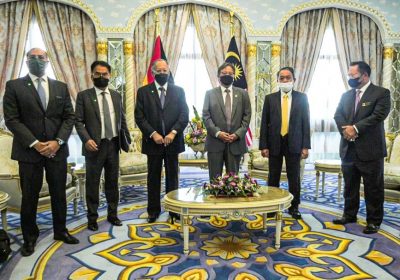Associate Professor Dr Fatimah Karii
KUCHING: The Sarawak government has been praised for introducing its own sales tax for petroleum products.
Stressing that economic growth is about strategy and bold decision, Associate Professor Dr Fatimah Kari of Universiti Malaya (UM) said Sarawak is actually deprived of the profits of the true value of its resources despite being at the top of the country’s social prosperity indicator by virtue of its position as an oil and gas producer.
Despite having resources such as oil and gas, “the sharing of wealth that benefits the producer state was minimal,” she pointed out.
She was asked to comment on the impact of Sarawak-produced oil and gas on the state’s Gross Domestic Product (GDP), pointing out it is taken away by Putrajaya which creates an “outwardly rich but inwardly poor impression of the state.”
“The Sarawak government has announced an expansionary 2019 budget of about RM9.07 billion and this is a good move.
“Introducing the sales tax on items such as O&G and minerals, which is expected to generate RM4.4 billion, is a good economic move,” she said. “The fact that the state of Sarawak is able to identify new tax/revenue area reflects pragmatism by our planners,” she added.
She stressed that the tax move is a global trend as can be seen in many Scandinavian countries, whereby tax on natural resources is relatively common to properly reflect the true value of what the nation owns.
The senior economist, who has published and presented many scholarly papers in the area of Environment and Poverty, Poverty Indexing and Environment and Growth, however warned that the state must also design strategies that do not depend too much on fossil fuels which will soon be a thing of the past.
She also reminded that Sarawak must design new development models especially to develop the rural areas with strong focus on education, road, water and electricity supply – which are basic needs.
“It is time for Sarawak to adopt development model based on the need to develop human resources while being trade and investment orientated state.
“Sarawak’s entry into the global market must continue to be developed more directly – both physically and negotiation-wise,” she advised.
Sarawak, she added, must move towards skill-based, value-added manufacturing sectors which are knowledge intensive.
“Never ever depend on sectors that employ cheap foreign labour – these are old model that will not create returns.”
She also stressed that Sarawak must allow rural development to become the anchor for new regional growth – with strong emphasis on technology, human resource, job creation and employment and wealth sharing.
“Yes, it can be done. All of these are not mere illusion as Sarawakians determine the destiny of our state,” she stressed.
The Senior Fellow of the Social Policy Unit in Institute for Democracy and Economic Affairs (Ideas) also lamented that federalism provides a biased development focus and allocation for Sabah and Sarawak.
“This is worsened by political control of the federal government as reflected in the case of the existence of poorer/ low income states/less developed states such as Kelantan, Sabah and Sarawak,” she pointed out.
The former director of the Centre for Poverty and Development Studies (CPDS), UM revealed that most of development literature and many academicians discussed on the lop-sided and bias of federalism which contributed to uneven growth.
“Within the context of centre-periphery /state-federal relationship, the periphery – states such as Sabah, Sarawak and Kelantan are far less developed than the centre – Selangor and Federal Territory of Kuala Lumpur,” she said.
She further cautioned the state government not to repeat past mistakes especially in the areas of bad and wasteful public fund investment such as in providing new growth areas/public amenities (water supply) as what had happened in Tanjung Manis.
“If the lopsided impact of federalism worsens inequality, bad governance and weak monitoring and evaluation on public investment will continue to widen disparity among regions and the rakyat,” she cautioned.
[Source: “Tax on natural resources reflects true value of what Sarawak owns, economist points out” published by BorneoPost Online]Photo Credits: BorneoPost Online





